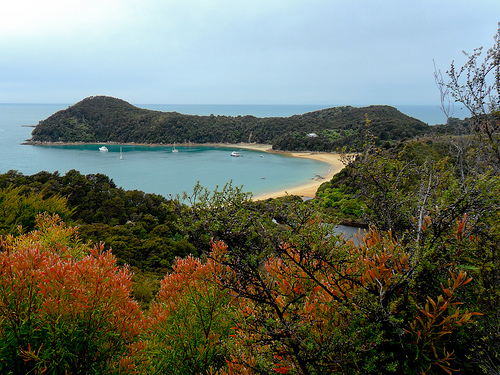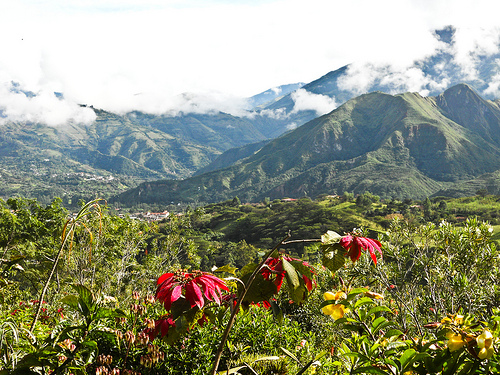
Ask most retired expats why they've moved overseas and you'll get a variety of answers -- many having to do with a more comfortable lifestyle and a lower cost of living.
But there's another reason ... and if you're currently on the high-stress, low-relaxation lifestyle path, you may want to read on ... because moving overseas can add years to your life and life to your years.
There are some reasons for that:
Warm climate: Most of us dream of retiring someplace warm. Snow and cold are things we gladly leave behind with our old 9-to-5 lives. And when the weather is warm and sunny, it's easy to spend more time outside in the fresh air. Before you know it, you may ease into an active lifestyle with lots of exercise ... and health experts agree that's key to keeping us looking and feeling young.
Some expats actually choose an overseas destination because they can practice a favorite sport there, such as golf, hiking or fishing. Others take up a new activity. If you're near the ocean, for instance, swimming or strolling the beach may become part of your new routine. If you live in a city, you may soon be walking to shops and markets, or just exploring your new hometown on foot. When adventure or fresh discoveries lie around every corner, long walks don't feel like exercise.
Social life: Fresh air and sunshine can also help you make friends. (Health experts say that social networking helps us live longer, too.) Ever stayed home from a social event because you couldn't face a cold, wet night out? In your new warm-weather home, you're more likely to ask, "Where's the party?" and enjoy the evening stroll there and back.
Healthy eats: With a warm climate comes a long growing season for fruits and vegetables. Expats often praise the quality and freshness of the produce they can buy locally. Sure, you can eat junk food if you want. But fresh, exotic produce can tempt you to eat more healthily. If you do, your health -- not to mention your taste buds -- will thank you.
So where are some of the world's healthiest places to live?

New Zealand: Healthy Living Kiwi-Style
Home to 4.3 million people, New Zealand and its awesome landscapes is, admittedly, a long way from North America. But since our winter is their summer, you might consider retiring here part-time. In a pollution-free environment, it's much easier to embrace a healthy lifestyle.
Plus there's an abundance of healthy whole foods. You can eat fresh seafood (that you can even catch yourself) and grow your own organic fruits and vegetables.
And don't worry - New Zealand's "outdoors lifestyle" isn't all about high-octane adventure or team sports like rugby. The most popular participation sports are walking and hiking. Surveys suggest that 64 % of adults go "tramping." Many families own a small boat, and fishing and swimming opportunities abound. No matter where you live, nowhere is more than a 90-minute drive from the ocean.
Overall, New Zealand offers far less stress, and health care is affordable and often free. For both sexes, average life expectancy is two years higher than in the U.S. In New Zealand, it's 83 for women and 78 for men.
Panama: Shangri-La Valley
"Live long and prosper." In the famed Star Trek series, it was the typical Vulcan salute. And that brings Volcan to mind. What better place in Panama to seek long life and live off the grid?
Few places rival Volcan for green-highland scenery and low-cost living. (How does $1,500 a month sound for a very comfortable lifestyle?) But there are some definite health benefits, too - including a year-round growing season that brings a huge variety of fresh fruits and vegetables to your dining table.
Check out the cemetery gravestones and you'll note people in this region live well into their 80s and 90s when life expectancies elsewhere in Panama average 77 years or less. Experts agree that's because of the combination of the spring-like weather and the fresh produce.
Often described as the "Shangri-La Valley," Volcan's attractions include thermal springs and fresh berry stands. Just try to stress out here; it's hard to do--the pace of life is so serene.
Centenarians in Costa Rica's Nicoya Peninsula
"Blue Zones" have been determined by scientists as places where the world's longest-living people reside. One of these is Costa Rica's Nicoya Peninsula on the country's northwest coast. A few years ago, researchers spent nine months there to determine why so many people live well into their 90s and 100s--longer than anywhere else in Costa Rica...or the world, for that matter.
The scientists studying the centenarians of the Nicoya Peninsula found eight key reasons for this longevity:
1. Diet. The people here are heavily influenced by the indigenous diet of the Chorotega, consisting of high-fortified corn and beans--healthy and high in fiber.
2. Water. With loads of calcium, the hard water encourages strong bones and fewer hip fractures.
3. Family focus. The Nicoya centenarians tend to live as couples or with children and/or other family members from whom they get support.
4. Eating lightly. They eat a light dinner early in the evening. (Eating fewer calories is proven to add years to your life.)
5. Dry climate. Nicoya is the driest part of Costa Rica, and in dry climates food doesn't spoil as quickly, the sun is more intense, and people get fewer respiratory diseases and more Vitamin D.
6. Social networks. The centenarians here get frequent visitors and they know how to listen, laugh and appreciate what they have.
7. Work. They've enjoyed physical work all their lives and find joy in everyday chores.
8. Purpose. They feel needed and want to contribute to a greater good.
Sardinia: Ancient Island, Ancient People
Off Italy's Mediterranean coast, Sardinia is a rugged island of 1.3 million people. It's often synonymous with the jet-set lifestyle.
But it's more than just beautiful. Sardinia is another Blue Zone where inhabitants regularly live long, healthy lives. (Tavern calendars here feature a "Centenarian of the Month.")
Dan Buettner, a noted author on longevity, interviewed several centenarians in Barbagia for National Geographic. He found that most still live with one or more family members. The men are shepherds and continue that lifestyle. They typically walk five miles a day and eat similar diets: whole grain flatbread, fava beans, tomatoes, greens, garlic, various fruits, olive oil and pecorino cheese from grass-fed sheep (high in Omega 3). Among older people, meat often remains reserved for Sundays and feast days.
One of these is Giuseppe Mura, aged 102. He starts work at dawn, comes home, sleeps a little, and then spends some time with friends in the village square. He then returns to the fields until dark.
Maria, his 65-year-old daughter, estimates her father drinks a liter of wine daily. The local wine is Cannonau, a dark, red wine with the world's highest levels of antioxidants.

Vilcabamba, Ecuador: The Valley of Longevity
Why do natives of Vilcabamba's "Valley of Longevity" live longer, healthier lives? Maybe it's the pollution-free environment or the highly oxygenated air. It could be the unique combination of minerals
in the water or the abundance of negative ions emanating from the mountains and fast flowing rivers. Easy access to natural medicines, largely unavailable in developed countries, is another possibility.
While all these factors can contribute to a longer, healthier life, they aren't the typical reasons expat residents give when they explain why they feel so much better living in Vilcabamba, Ecuador. A more typical response will reference the valley's magnificent weather -- your body doesn't have to expend energy adapting to climatic extremes. Windows can be open 24/7, filling your house and your lungs with crisp, clean air.
Vilcabamba's idyllic year-round weather also means anytime-access to fresh, tasty and inexpensive fruits and vegetables. And it's easy to get up and go when the weather outside is so good. How can your doctor and your body not like that?
The French Longevity Recipe
In 1911, The New York Times reported on French life expectancy. "At the beginning of the last century, the average duration barely exceeded the age of 30. In 1880 it was up to 40, and now varies between 47 and 48."
Since then, life spans have increased at an astonishing rate. Life expectancy now tops 80 for France's population as a whole but is 84 for women.
That's the average. The Paris-based National Statistics Institute showed 20,115 centenarians in 2008. Offset against a total population number of around 65 million, France's centenarian ratio outranks the U.S. and Japan.
What puzzles researchers is that, despite a rich diet, France has low rates of heart disease. Some scientists suggest the explanation could be the habit of eating everything, but in small portions.
Others put it down to red wine. Particularly high levels of a plant chemical called procyanadin are found in Tannat grapes from the Southwest region. Experts say this is beneficial for blood vessels.
Sounds right to us...
Earlier on Huff/Post50:
